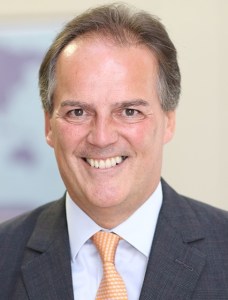Becoming a political advisor to the Labour Party sits rather low on the list of my life’s aspirations.

However, last September I unwittingly acted in just that capacity by outlining a path to a Labour victory. And, what’s worse, they now seem to be taking it. This is what I wrote:
“They can guarantee a win by ditching Corbyn a month before the polling date and replacing him with, well, just about anybody.
“Then they can win without changing one comma in Corbyn’s Trotskyist programme. For, while our voters see nothing wrong with Corbyn’s programme, they increasingly see something wrong with Corbyn.”
I’m sure neither Shadow Chancellor McDonnell nor Shadow Home Secretary Abbott has read my piece. And yet they must have got the message osmotically. That’s why they gave their friend (and Abbott’s ex-lover) an ultimatum: either sack the more hideously anti-Semitic of your advisors, or we’ll sack you.
And it’s not just the anti-Semitism scandal, Jeremy, they told him. It’s also your shilly-shallying on Brexit. So here’s the deal: either you support a second referendum or we’ll find a leader who will. Nothing personal, comrade, that’s just how life is.
Do what we tell you, and you just may remain where you are for a while. But not for ever, mind you. An ‘ice-pick’ coup is brewing within the Labour Politburo and, much as we love you, we can only keep it at bay for so long.
With all due modesty, I can’t ascribe their action solely to my ESP message. Labour slumping to a risible 18 per cent rating in the polls must have had something to do with it.
But it’s reassuring to note that they clearly see Corbyn as a Trotsky-like figure, for Trotsky was indeed dispatched with an ice-pick. Or rather he wasn’t: these ignoramuses can’t get anything right.
Stalin’s agent Ramón Mercader did murder Trotsky in 1940, but he did so with an ice axe, not an ice pick. The latter is a stabbing weapon, whereas the former is a chopping one, which is why Mercader managed to bury it to a satisfactory depth in Trotsky’s skull. But such pedantry aside, the metaphor is telling.
For throughout his career Corbyn has treated Trotsky as his role model. Jeremy in general has seen no mass murderers he can’t love, and it’s immaterial to him whom and for what cause they murder. IRA, Hezbollah, Sandinista, Hamas, PLO – you name them, Jeremy loves them.
But compared to Trotsky they’re all babes in the woods. That cannibalistic ghoul was a principal figure in the Bolsheviks’ seizing of power, and even a more principal one in their keeping it.
Once power was secured, Trotsky planned to use it for what he called ‘permanent revolution’: non-stop pouncing on Europe like a rabid dog until the whole continent had been turned into either a concentration camp or a mass grave.
His favourite stratagem for keeping troops in the frontline was decimation, in the classical sense of the word: executing every tenth soldier before the ranks. His domestic policy was similar: red terror, to last as long as it took to turn the whole population into unthinking slaves ready to do Bolshevik bidding.
Trotsky’s conflict with Stalin was that between extremism and moderation, and you can judge the character of Corbyn’s role model by the fact that, compared to him, Stalin was a moderate.
In his adulation of Trotsky, Corbyn has shown unwavering consistency. When still a backbencher in the 1980s, he kept petitioning the Soviet government for the “complete rehabilitation” of Trotsky, who had remained a non-person ever since his clash with Stalin.
Corbyn even went on a pilgrimage to the shrine of the Trotsky museum in Mexico City, where Mercader had swung his ice axe. But then Jeremy does pilgrimages with the best of them, provided the relics belong to murderous enemies of the West and, ideally, Jews.
That’s where I observe a conflict of pieties. How does Corbyn reconcile his anti-Semitism with his adoration of Lev Davydovich Bronstein (aka Leon Trotsky)? Perhaps he feels Trotsky redeemed his unfortunate birth by preaching and practising the politics Jeremy favours.
That would be him having a Hermann Göring moment. When the Gestapo told Göring that his Luftwaffe deputy Milch was a crypto-Jew, Göring replied: “At my headquarters I decide who is a Jew and who isn’t.”
Or perhaps Corbyn has decided that Trotsky was so wonderful that he couldn’t possibly have been a Jew. Or else he has arranged his convictions in some order of priorities. One way or another, there’s food for thought here, but not necessarily mine.
What’s more interesting – and alarming – is that Labour seem to have arrived at a winning strategy. They are going to dump Corbyn and replace him with someone else, probably McDonnell.
Now McDonnell’s politics are to the left of even Corbyn’s. If he were any further left, he’d be dropping Sarin gas into Tokyo underground or else agitating for a Great Leap Forward.
Yet I’m convinced that British voters have been sufficiently primed not to mind that. Once Corbin is gone, they’ll heave a sigh of relief and flash a self-satisfied smile: their voice has been heard. Now they’ll feel justified in voting for Corbynism without Corbyn.
It’s likely that soon after the Tories have a new leader, and Britain a new PM, Labour will force a general election by passing a vote of no confidence in Parliament. In that they will be assisted by other left-wing parties and, critically, some 30 ‘Tory’ turncoats.
Predicting who’ll win that election is a perilous task. However, anyone who looks at the latest polls and feels Labour won’t have a good chance to form the next, Trotskyist, government has an exaggerated faith in the wisdom of the British public.
Trotsky may yet smile out of his Mexican grave. And even Jeremy Corbyn may do so while tending his retirement allotment.







